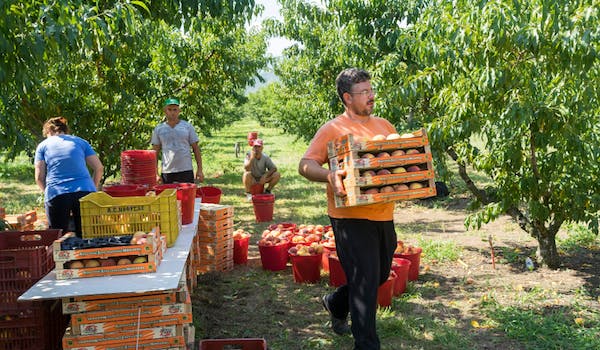Smaller Australian food producers would benefit if government institutions, including schools and hospitals, bought locally when sourcing their food instead of looking overseas.
The Australian Food and Grocery Council, the National Farmers’ Federation and the Australian Manufacturing Workers’ Union have formed a new and powerful coalition. Together they are leading the charge for government procurement policies to be overhauled to give greater opportunities to local producers.
As reported in The Australian, this coalition is pushing for locally grown foods to win any government and public sector tender if the Australian product costs no more than 25 per cent more than any international bid. Currently, two thirds of all food and drink bought for government run institutions is sourced from overseas.
Spokesman for the National Food and Grocery Council, James Mathews, told Dynamic Business that government institutions needed to take a “holistic” approach and develop procurement policies that recognised the benefits of sourcing food locally.
He said the benefits of sourcing more produce locally would have significant flow-on effects to rural economies, help create and preserve more jobs as well as driving greater taxation revenue.
“We would like to see a greater appreciation of that,” he said.
Mr Mathews said the benefits of such an approach would have positive outcomes right across the supply chain.
The peak body representing vegetable and potato growers, AusVeg, told Dynamic Business that state governments should support local growers and regional economies by “committing to a procurement policy that prioritises Australian-grown and Australian-made produce.”
AusVeg Manager for Government and Parliamentary Relations, Andrew White, said the organisation not support quotas but favoured a procurement policy that gave “increased weighting to food safety and quality, the ethical sourcing of food, the sustainability of the production methods and social and economic benefits to the state”.
He said Australian food producers would inevitably see benefits from such a change because it would help to minimise financial uncertainty.
“AusVeg frequently calls attention to the financial uncertainty and volatility faced by growers, and the increasing difficulty of surviving in the industry,” he said. “This financial uncertainty leads to a lack of confidence.
“State Governments’ sourcing of local produce will give growers confidence and will enable them to make long-term investment decisions which will assist to help ensure the health and security of their businesses.”
He said smaller producers would “absolutely” see a benefit in a change of policy to de-prioritise low cost food procurement.
“Economies of scale are prevalent in horticulture with larger producers tending to have lower production costs; smaller-scale growers, with their need to recoup higher production costs, would no longer be at such a disadvantage in competitive tenders.”

